Are you ready to navigate the intricate world of publishing rights negotiations? Whether you're an author seeking to retain control over your work or a publisher aiming to secure attractive titles for your catalogue, understanding the nuances of these discussions is crucial. In this article, we'll break down the essential elements of a letter template designed specifically for publishing rights negotiations, providing you with practical insights and tips. So, let's dive in and explore how to craft a compelling letter that sets the stage for successful negotiations!
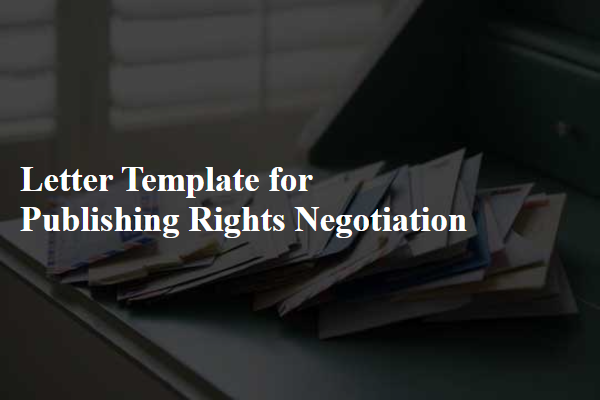
Licensing Agreement Terms
Publishing rights negotiations often involve the intricate details of licensing agreements, which outline the conditions under which content, such as books, music, or visual art, can be reproduced, distributed, or publicly performed. Key elements include scope of rights (exclusive vs. non-exclusive), geographical territories (such as United States or European Union), duration of the agreement (ranging from one year to perpetuity), and financial terms (including royalties or advance payments). Additional clauses may address moral rights, termination conditions, or indemnification. Careful consideration of these terms is crucial to ensure both parties' interests are safeguarded while promoting creative works effectively.
Royalty and Payment Structure
Publishing contracts often involve complex negotiations surrounding royalties and payment structures. Publishers typically offer authors a percentage of the sales revenue, which can vary widely. For instance, print book royalties may range from 5% to 15% of the retail price, while eBook royalties may be higher, often between 20% and 30%. Advances against royalties are common, providing authors with upfront payments, usually ranging from $1,000 to $100,000, depending on the author's previous success and market potential. Payment schedules also differ; some publishers may pay quarterly while others may operate on an annual basis. Ensuring clear terms regarding reversion of rights can protect authors, allowing them to reclaim their intellectual property should a publisher fail to perform adequately. Understanding these details is crucial for authors when entering publishing agreements.
Duration of Rights and Territory
Publishing rights negotiations often focus on two critical elements: Duration of Rights and Territory. The Duration of Rights stipulates the time frame during which the publisher retains the rights to distribute the work, which can range from a specific number of years to a perpetual license. Key factors influencing this period include market demand, anticipated sales performance, and potential future editions of the work. The Territory encompasses the geographical areas where these rights apply, which may include specific countries, regions, or global rights. Publishers often seek worldwide distribution for maximum reach, while authors may negotiate for more localized rights to maintain control over certain markets. It's essential to consider both aspects to ensure a fair agreement that balances the interests of both parties involved in the publication of the material.
Intellectual Property Clauses
Publishing rights negotiations often involve intricate intellectual property clauses to protect the interests of authors and publishers. These clauses typically delineate the ownership of copyright, specifying that authors retain copyright over their original works while granting publishers exclusive or non-exclusive rights to publish, distribute, and sell the work in various formats. Licensing terms can include duration, geographic scope (such as rights limited to North America versus worldwide), and media types (e-books, print, audio). Additionally, clauses addressing royalties clarify the percentage of sales to be paid to the author, potential advances against royalties, and provisions for rights reversion if sales do not meet specified thresholds within a certain period, fostering a fair balance between creative expression and commercial exploitation.
Termination and Reversion of Rights
Publishing rights negotiations often culminate in intricate discussions surrounding the termination and reversion of rights. Authors, such as novelists or academic writers, frequently seek to reclaim rights to their works after a specified period, usually outlined in a contract or agreement. Key aspects include the duration of the rights agreement (often ranging from five to twenty years), successful sales thresholds (typically determined by annual sales numbers), and clauses addressing any marketing commitments by the publisher. In cases of non-compliance, authors may assert their right to reclaim works, especially if the publisher fails to issue new editions or actively promote the title. State laws, such as those in California or New York, play a significant role in shaping reversion requests, allowing authors to submit formal notices to initiate discussions. This delicate negotiation process often impacts future publishing endeavors and can lead to the re-establishment of control over one's intellectual property.
Letter Template For Publishing Rights Negotiation Samples
Letter template of publishing rights negotiation for self-published authors.
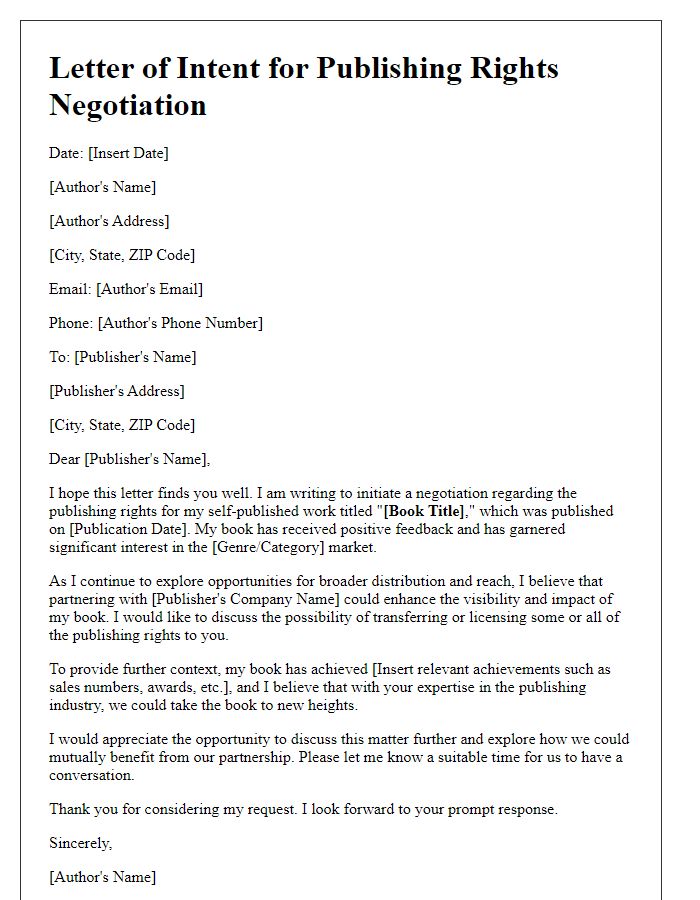
Letter template of publishing rights negotiation for co-authored projects.
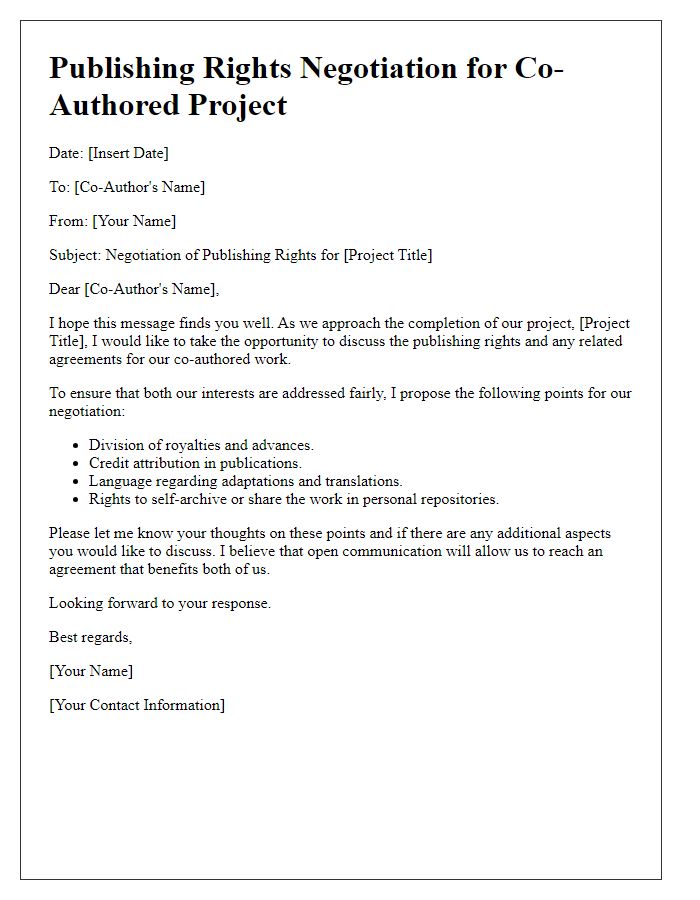
Letter template of publishing rights negotiation for adaptations and derivatives.
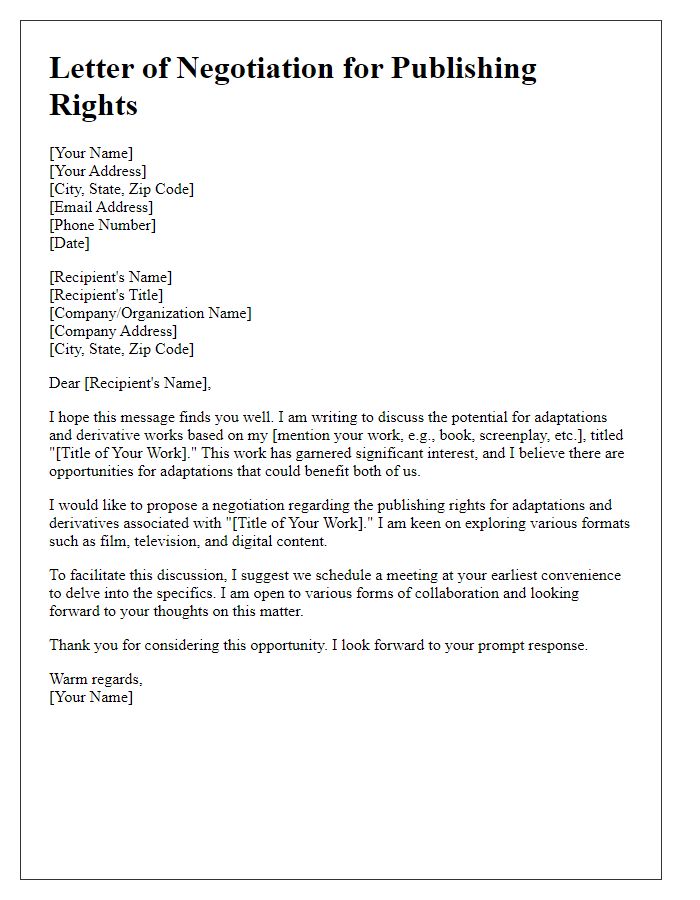

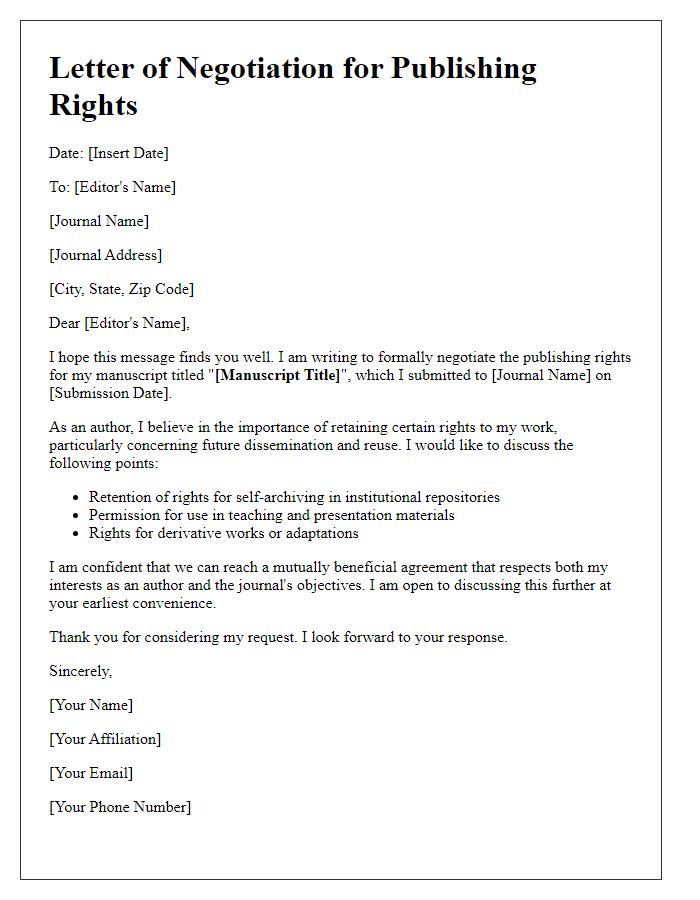
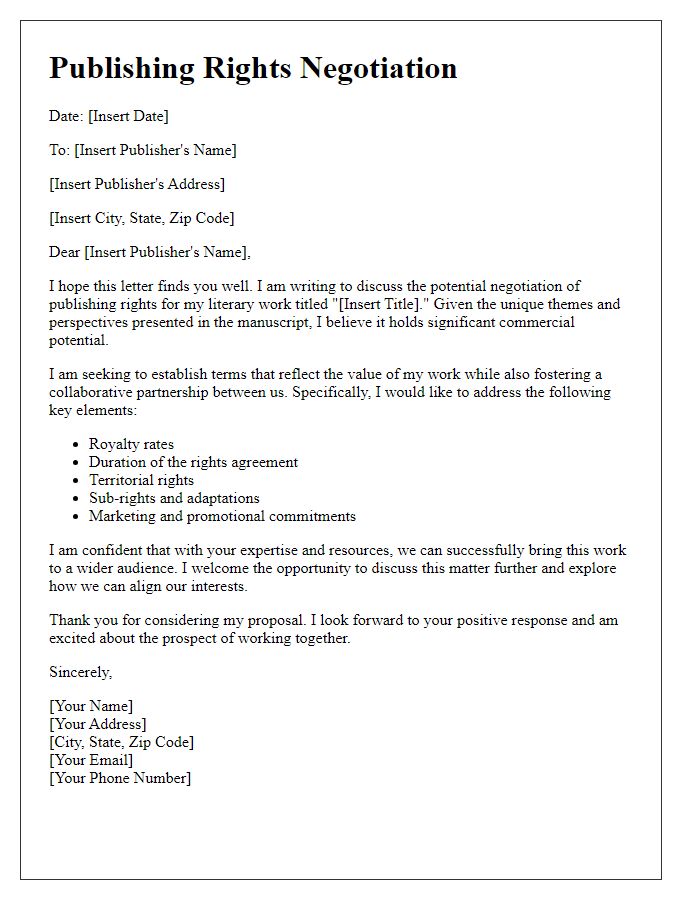
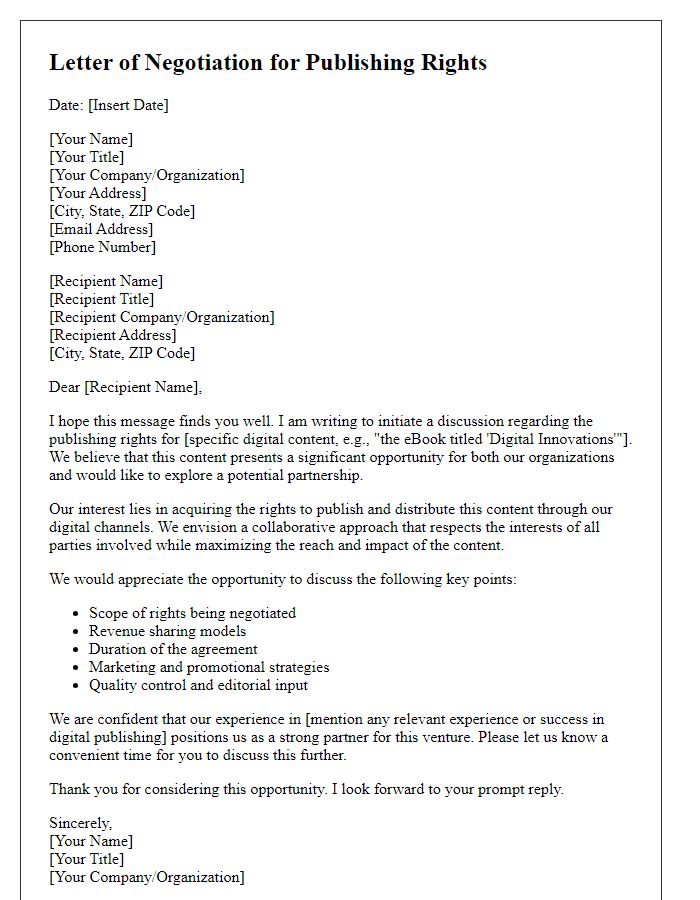
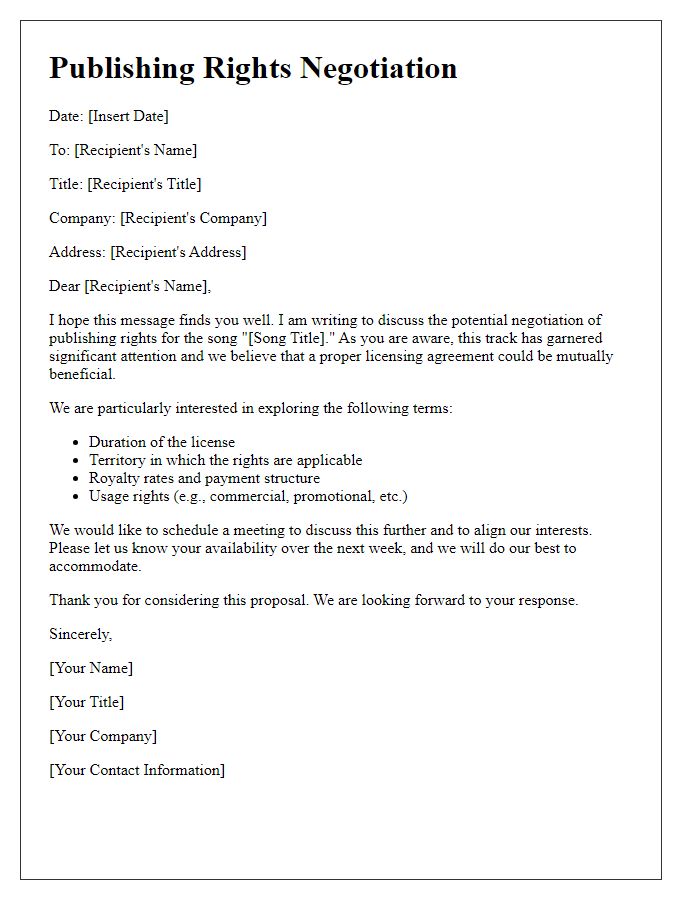
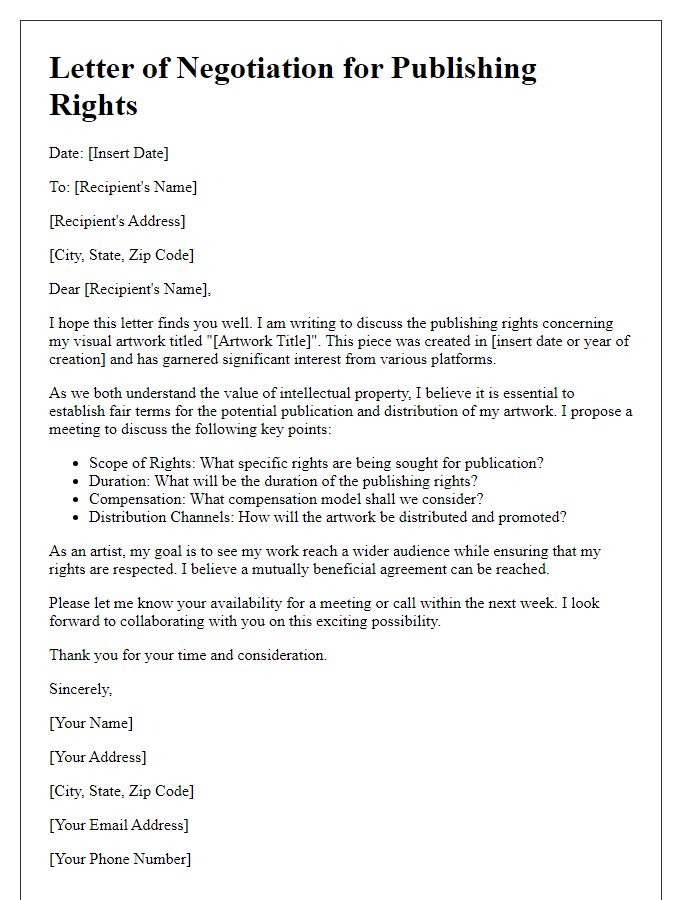

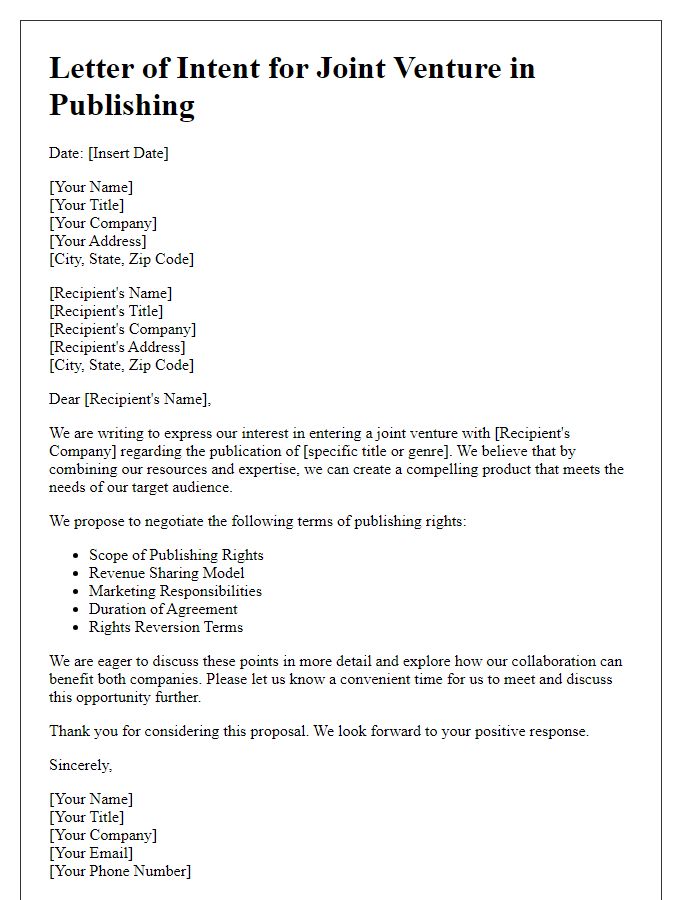

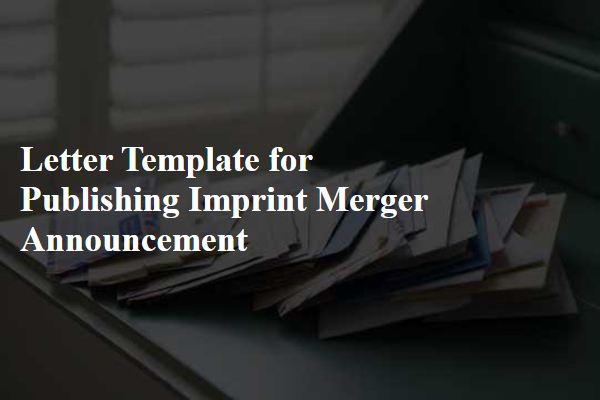
Comments